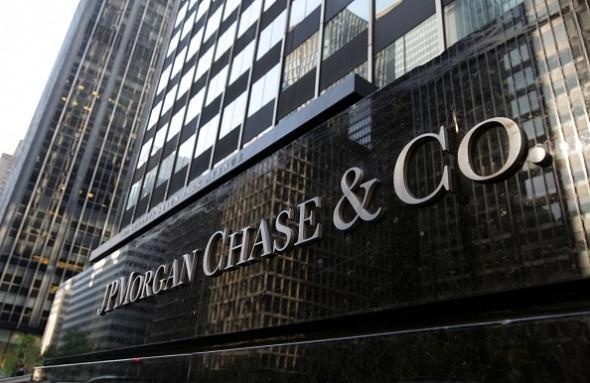
A federal judge said Wednesday that he won’t block JPMorgan’s legal efforts to blame a former executive of hiding Jeffrey Epstein’s decades-long sex abuse to keep the financier as a client.
Judge Jed Rakoff in Manhattan denied requests by lawyers for the executive, Jes Staley, to toss out claims the bank made against Staley after it was sued last year by the U.S. Virgin Islands, where Epstein maintained a residence, and a woman who identified herself as one of Epstein’s victims.
The judge said he’ll explain his reasoning later in a written decision.
Staley’s lawyers had asked in court papers for dismissal of JPMorgan's claims, saying the bank was using Staley as a “public relations shield” by asserting claims with no legal basis.
They said Staley had no decision-making authority over Epstein's accounts and was not alleged to have seen any of the suspicious account activity that other JPMorgan employees ignored.
Epstein was 66 when he apparently killed himself in a Manhattan federal jail cell where he was awaiting a federal sex trafficking trial after his application for bail was denied. He had pleaded not guilty to charges that he sexually abused dozens of girls, some as young as 14.
Staley, who worked at JPMorgan from 1979 until January 2013, reported to Jamie Dimon, the bank's president and chairman, after he became chief executive officer for JPMorgan's Corporate and Investment Banking division in 2009, his lawyers said. Dimon is scheduled to be deposed this week in the Epstein-related litigation.
Staley left JPMorgan to become CEO of London-based bank Barclays, though he resigned last year after British regulators reported his past links to Epstein.
Staley's lawyers did not immediately return a request for comment on the judge's ruling Wednesday.
In lawsuits filed late last year against JPMorgan, the U.S. Virgin Islands and a woman who identified herself in court papers as “Jane Doe” claimed that the bank provided Epstein with large amounts of cash from 1998 through August 2013 even though it knew about Epstein's sex trafficking practices.
Both lawsuits were filed after New York state in November enacted a temporary law letting adult victims of sexual abuse to sue others for the abuse they suffered, even if the abuse occurred long ago.
JPMorgan, in opposing Staley's request to be dismissed from the litigation, has called the lawsuits “misguided” for targeting the bank.
It noted that Jane Doe's lawsuit mentioned Staley 97 times and claimed that Staley “knew without any doubt that Epstein was trafficking and abusing girls” while the U.S. Virgin Islands' lawsuit named him 41 times.
“If these allegations are proven to be true then Staley must be held accountable for his alleged misconduct and any harm that conduct caused to victims and the company,” the bank's lawyers wrote in court papers.
The New York bank seeks to hold Staley personally liable for any financial penalties JPMorgan could face in the case and also seeks to recover back wages Staley earned during years when he allegedly knew about Epstein's abuse.
On Tuesday, JPMorgan filed court papers accusing the government of the Virgin Islands with complicity in Epstein's crimes, saying that government officials were bought off by Epstein to look the other way while he used his estate to host teenage girls who were sexually abused.
A spokesperson from the U.S. Virgin Islands attorney general’s office said Tuesday in an email that JPMorgan was trying to “shift blame away” from the bank, which had a responsibility to report human trafficking but failed to do so.